Flaws & all: how brands and customers are embracing imperfection
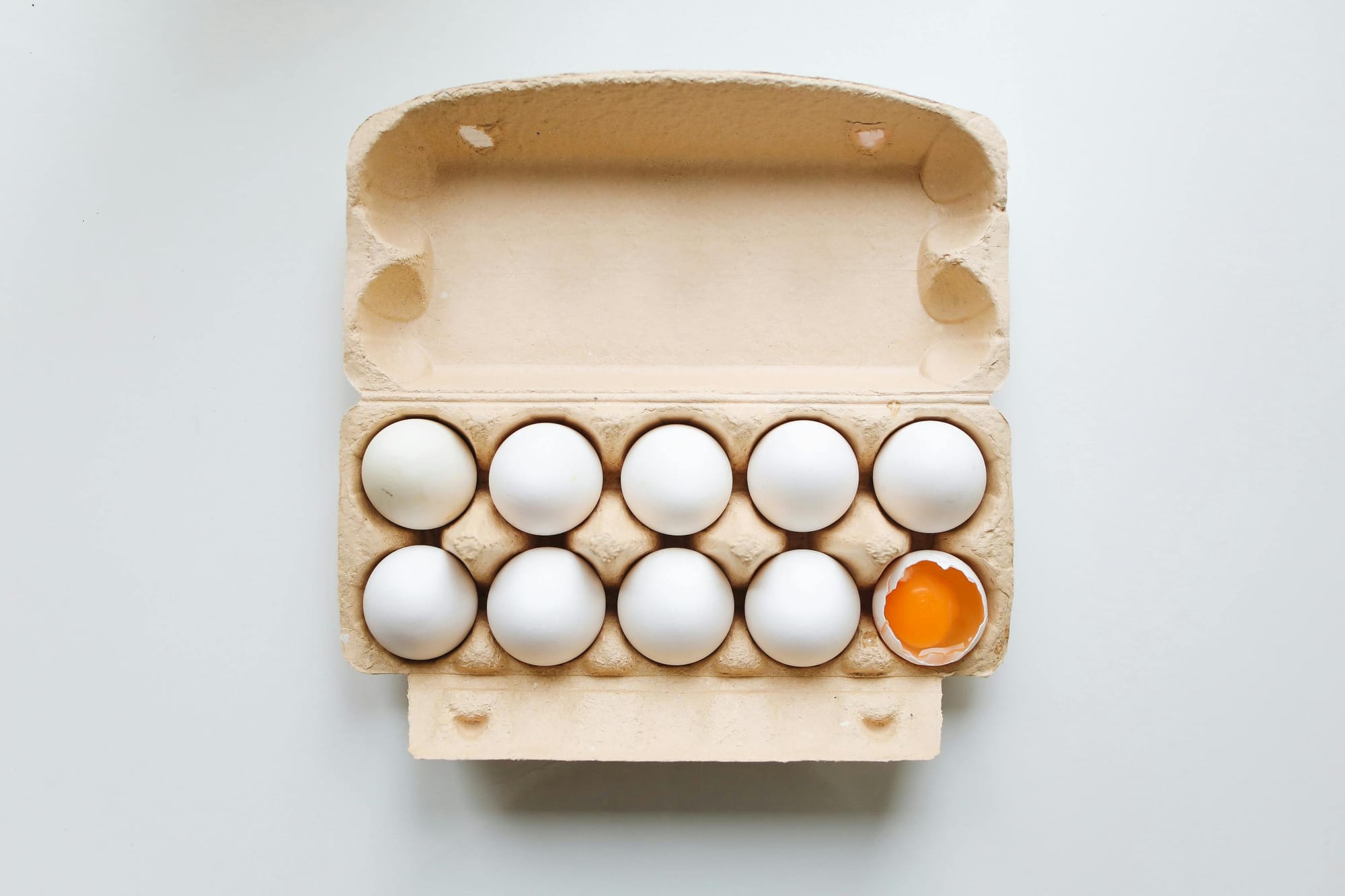
Les points-clés en français au bas de l'article
When Intermarché launched its “Ugly Fruit & Veg” campaign in 2014, it was an immediate success, with stores almost selling out. The initiative not only raised the issue of food waste and offered an element of response; it also questioned the notions of perfection and consumer acceptability regarding overall perceived quality.
Fast forward 10 years and imperfect (“inglorious” as Intermaché put it) fruit and veg have become ubiquitous, including through subscription boxes like Wonky Veg Boxes in the UK or Pimp Up in France, with a double promise: less waste and cut-price offers – which in the current economic context is probably a more compelling argument to many than eco-responsibility.
What is new though is that the trend is spreading to new categories of products, revealing a shift in the way consumers define what a purchasable item is, i.e. not necessarily a perfect one. This change in mentality, which also explains the popularity of second-hand platforms, is pretty recent. A significant initiative was the introduction in 2021 of the “Look-Smell-Taste” label by Too Good To Go, which encouraged people to trust their senses and think before throwing away products past their ‘Best Before’ date (vs. their ‘Use by’ date)
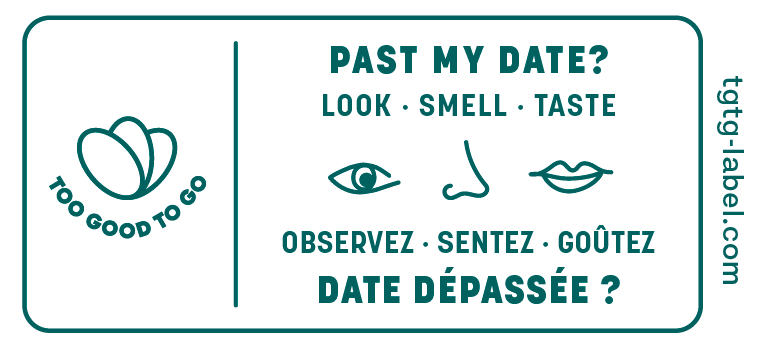
“Perfectly imperfect” is becoming a more widespread phrase, as people are starting to adopt similar behaviour with beauty, fashion or lifestyle products, that is to say decide on a case-by-case basis what is acceptable or even, in the case of a unique, vintage fashion piece, desirable, vs. the automatic, default acceptance of standardized, 'perfect' products.
FASHION, ACCESSORIES, LIFESTYLE
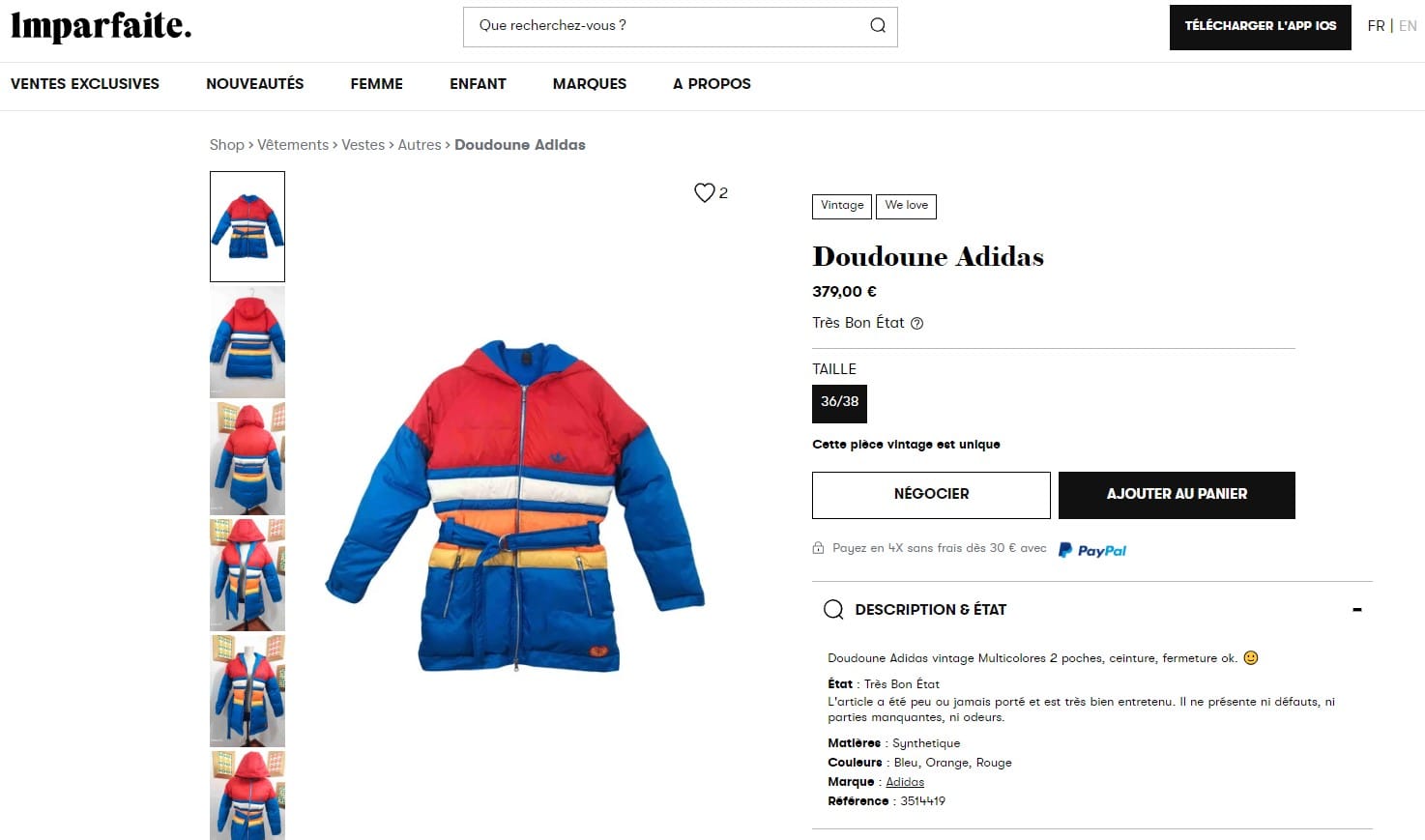
Equating imperfection with desirability is precisely what Imparfaite, launched in 2017, does: the platform sells unearthed, unique pieces that are over 20 years old (i.e. “the natural selection of clothes”, vs. second-hand, fast-fashion items).
The name was chosen to assert the value of imperfection (“Imparfaite, with a dot. Because it is not a coincidence, it is a manifesto”), which the brand embraces as an essential ingredient of beauty:
“Imparfaite (imperfect in english), because we all are. Our asymmetrical bangs, our mole in the corner of our eye, our stretch marks, our love handles… all our so-called “imperfections” define us, make us unique, create our character and make us beautiful. It is thanks to them, and not in spite of them, that the people who really, deeply love us, love us so much... This is the secret of love and also the secret of French style: to be beautiful precisely because you are imperfect.”

Also in fashion but with a different proposition: eBay’s Imperfects initiative launched in 2022, which sells clothes, footwear and accessories with small defects at prices up to 60% off – e.g. Tom Ford sunglasses with a small scratch on a lens.
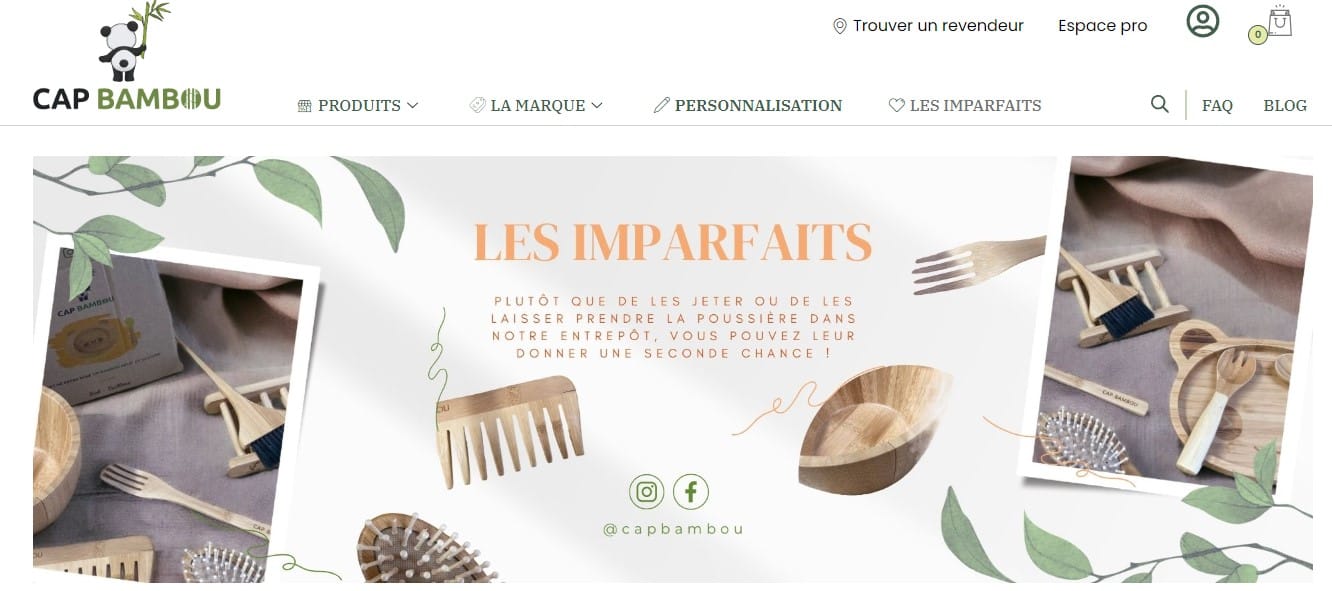
A few brands have added dedicated sections to their e-stores, for instance handcrafted goods seller Village Thrive, whose Imperfect Goods section includes products with hardly perceptible defects (small stains on rattan or uneven cotton pieces) and are sold at a 40% discount. Or French manufacturer of baby products Cap Bambou, which has a similar policy.
PACKAGED FOOD
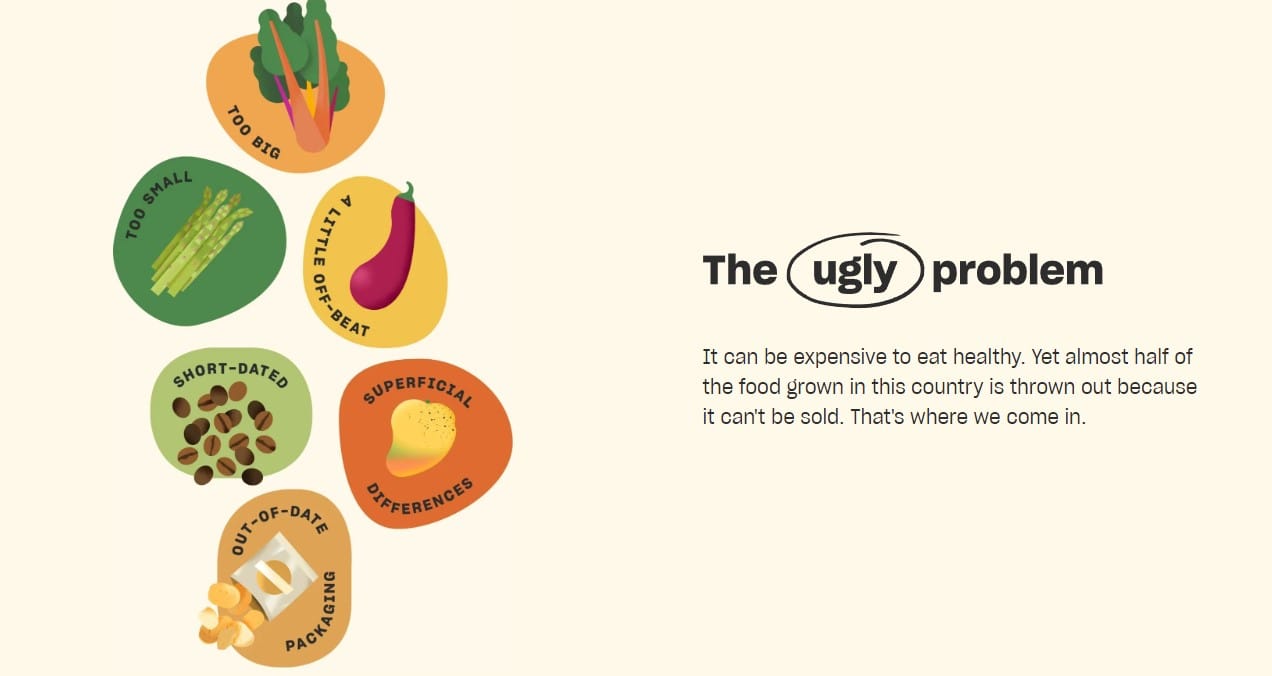
In the US, Misfits Market is a delivery service that sells perfectly good, mostly organic products – both fresh and packaged – that are rejected from grocery stores because they are near their ‘best by’ date or have packaging issues. The company CEO Abhi Ramesh talks building a $2 billion grocery delivery business.
BEAUTY, where skin positivity happily coexists with "anti-imperfection" ranges ;)
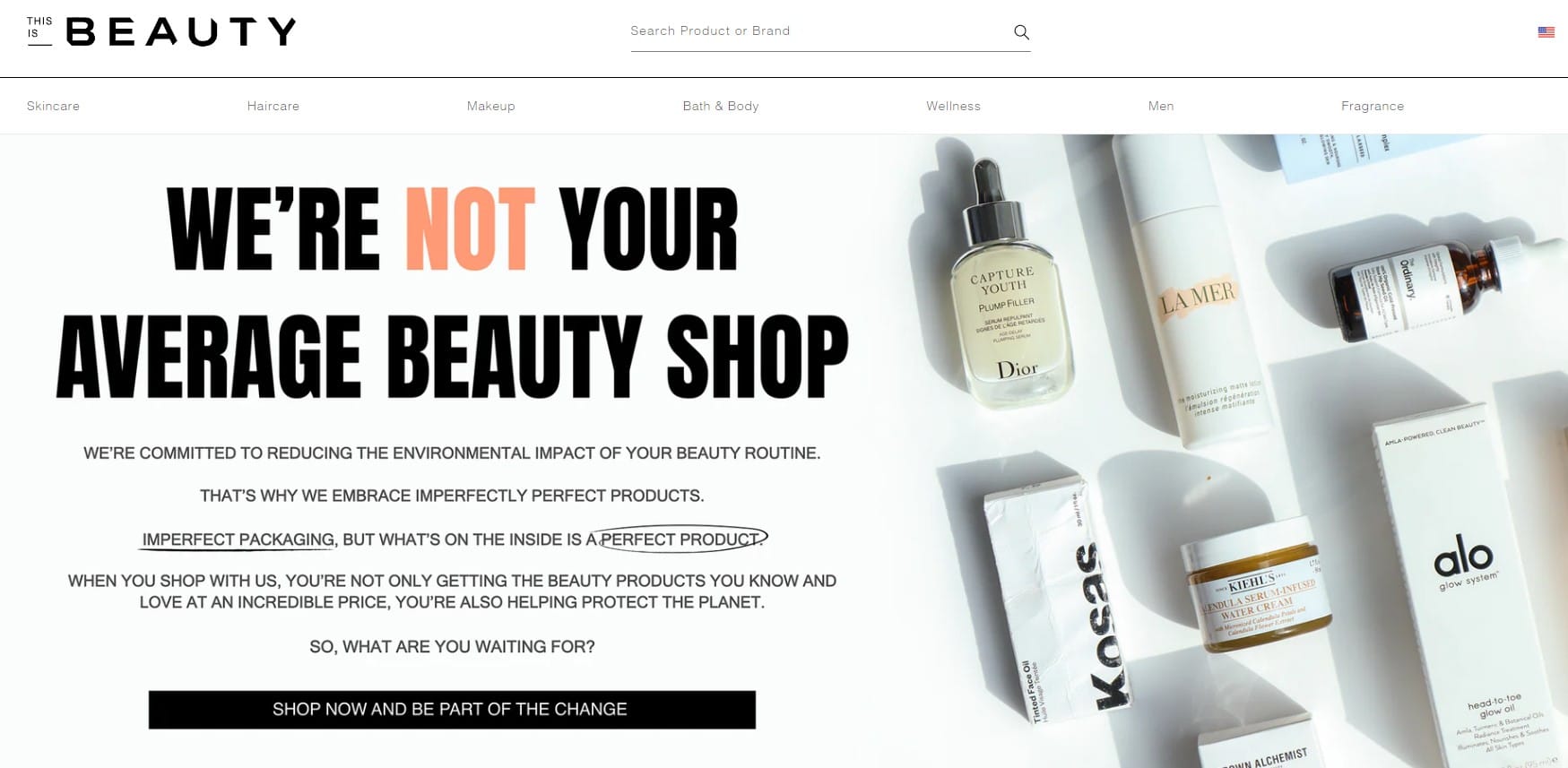
This is Beauty (imperfection is, correct?), which is present in the UK and US launched its e-commerce platform in July 2023, sells perfect, discounted items in imperfect packaging or discontinued ranges, while “transforming the way people shop and think about beauty products”.
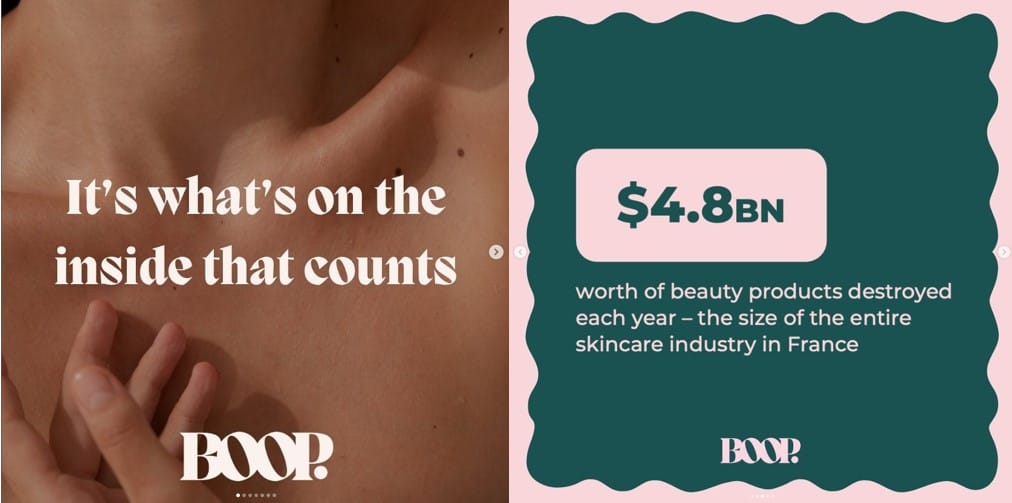
Boop, also in the UK, has a similar approach and a so does Greez in France, with new brands sold every Tuesday.
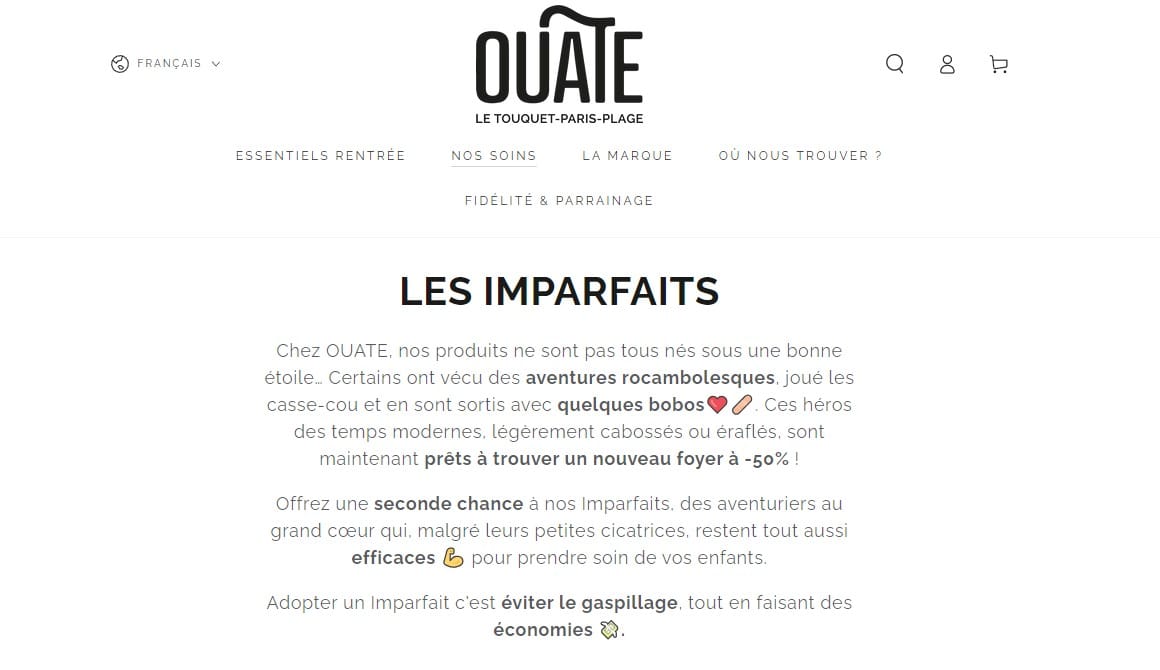
Like in fashion, a few (very few) brands have embarked on the trend, for instance French skincare brands Ouate or Krème as well as suncare brand Mimitika – which we talked about here.
WHAT IT MEANS FOR BRANDS
Obviously, embracing imperfection and selling products that can be eaten, applied and used makes sense and is good news for the planet. But it is also a great opportunity for brands to strengthen the relationship with their customers.
Not just by offering discounts but, more importantly, by encouraging their clients to go (a little) off the overbeaten consumption path, think for themselves and play a small yet essential part in living and buying more consciously.
-----------------------------------------
En français :
- 10 ans après les Fruits et Légumes Moches d'Intermarché, la nécessité de lutter contre le gaspillage alimentaire, combinée à un contexte économique difficile, a encouragé l'émergence de nouveaux acteurs. Un exemple parmi d'autres en France : les paniers de PimpUp, qui contiennent des fruits et légumes "parfois biscornus et toujours goûtus"
- Les critères d'acceptabilité des produits sont redéfinis, dans l'alimentaire mais aussi dans d'autres domaines :
- la mode, comme l'illustrent la plateforme bien nommée Imparfaite ou la récente initiative Imperfects d'eBay
- la beauté, avec des plateformes comme Boop au UK ou Greez en France, qui commercialisent des coffrets anti-gaspi, ou encore des marques comme Ouate, Krème ou Mimitika qui proposent des produits au packaging présentant des défauts
- Si la dimension éthique et durable est évidemment au coeur de la démarche, l'imperfection est aussi une manière pour les marques de proposer une consommation qui sort (un tout petit peu) du cadre et de renforcer la relation avec leur clientèle dans un geste commun juste et qui a du sens.